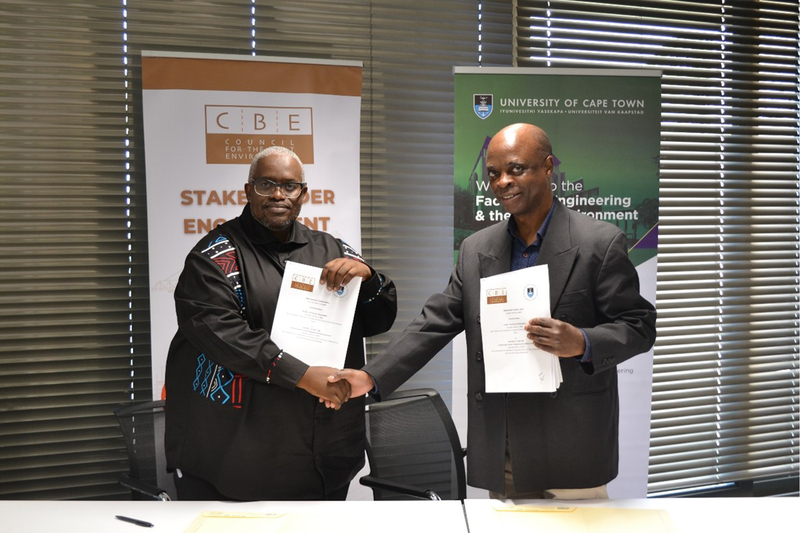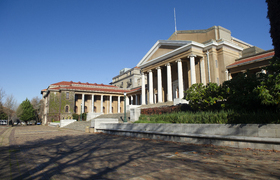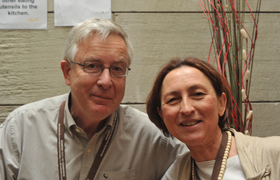UCT, CBE partner to reshape SA infrastructure
07 October 2025 | Story Velisile Bukula. Photo Council for the Built Environment. Read time 3 min.
The University of Cape Town (UCT) and the Council for the Built Environment (CBE) have signed a Memorandum of Understanding (MoU) that will reshape the way academia, government, and the built environment sector work together to address national priorities.
The agreement was concluded on 29 September 2025 by UCT’s Faculty of Engineering & the Built Environment (EBE) and the CBE.
The CBE, a Schedule 3A public entity that reports to the Department of Public Works and Infrastructure, was established through the Council for the Built Environment Act 43 of 2000. It coordinates six statutory professional councils for architecture, landscape architecture, engineering, property valuers, project and construction management, and quantity surveying. Through additional agreements, its scope extends to town and regional planning, land surveying, and environmental assessment.
The CBE’s mandate is to promote professional conduct in the built environment, drive transformation, protect the public interest, and advise government on key issues. Its new partnership with UCT and other higher education institutions sets out a framework to:
Elevate knowledge into impact: translate research into evidence-based policy and practice through engagement with professional councils.
- Strengthen the skills pipeline: expand opportunities for students and graduates through work-integrated learning, candidate programmes, and professional registration.
- Champion transformation: support historically underrepresented institutions and groups, positioning the built environment as a driver of equity.
- Lead in the Fourth Industrial Revolution: embed indigenous knowledge, digital innovation, sustainable materials, and climate resilience into professional training and practice.
Bridging academia and industry
UCT’s dean of EBE, Professor Aubrey Mainza, emphasised the faculty’s leadership role: “Our faculty is committed not only to academic excellence but to shaping solutions for the real challenges facing our country and continent. This collaboration with the CBE ensures that our students and researchers are directly contributing to national priorities and global goals.”
By combining the CBE’s regulatory influence with UCT’s academic expertise, this agreement positions South Africa’s built environment sector as a catalyst for transformation and innovation.
“The signing of this MoU is more than an agreement; it is a commitment for joint implementation of tangible programmes to transform South Africa’s infrastructure landscape.”
“This partnership embodies the spirit of the ministerial dialogue with deans and heads of schools of built environment faculties who committed to bridging the gap between theory and practice. Therefore, the signing of this MoU is more than an agreement; it is a commitment for joint implementation of tangible programmes to transform South Africa’s infrastructure landscape,” said CBE chief executive officer, Dr Msizi Myeza.
This partnership signals a new chapter for South Africa’s built environment. It moves beyond the act of building to reimagining infrastructure that is sustainable, inclusive, and responsive to the country’s future needs.
 This work is licensed under a Creative Commons Attribution-NoDerivatives 4.0 International License.
This work is licensed under a Creative Commons Attribution-NoDerivatives 4.0 International License.
Please view the republishing articles page for more information.










